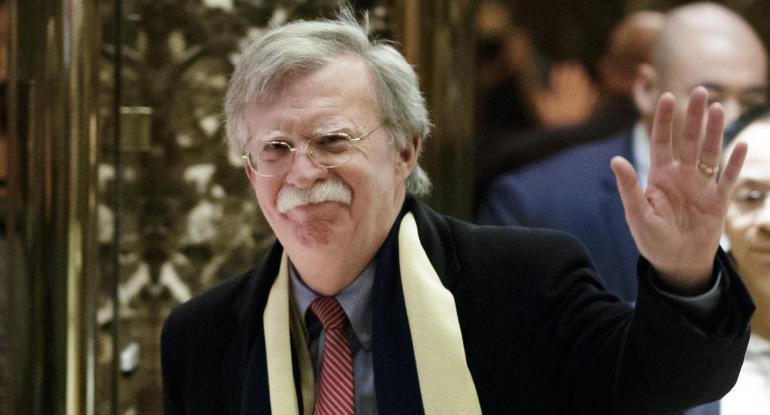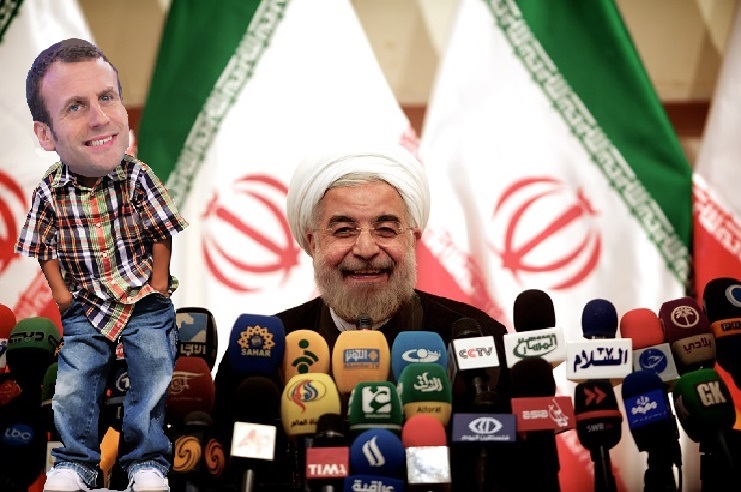So much time, money and effort has been wasted while the mullahs march for their ultimate aim, threaten Israel, and blackmail the West into accepting more Islamic norms.
If Europe refuses to rally around Trump’s insistence of new ‘teethy’ sanctions against the Iranian regime, their nukes will hang a very long shadow over the European continent as well, and with devastating effects without firing a shot.
The West’s collapse was a grave error. Regardless of JCPOA limits, Iran benefits from continued enrichment, research and development by expanding the numbers of scientists and technicians it has with firsthand nuclear experience. All this will be invaluable to the ayatollahs come the day they disdain any longer to conceal their real nuclear strategy.
A Slow Death for the Iran Deal
As Abba Eban observed, “Men and nations behave wisely when they have exhausted all other resources.” So it goes with America and the Iran deal. President Trump announced Friday that the U.S. would stay in the Joint Comprehensive Plan of Action (JCPOA), even while he refused to certify under U.S. law that the deal is in the national interest. “Decertification,” a bright, shiny object for many, obscures the real issue — whether the agreement should survive. Mr. Trump has “scotch’d the snake, not kill’d it.”
While Congress considers how to respond — or, more likely, not respond — we should focus on the grave threats inherent in the deal. Peripheral issues have often dominated the debate; forests have been felled arguing over whether Iran has complied with the deal’s terms. Proposed “fixes” now abound, such as a suggestion to eliminate the sunset provisions on the deal’s core provisions.
The core provisions are the central danger. There are no real “fixes” to this intrinsically misconceived agreement. The Nuclear Non-Proliferation Treaty (NPT), to which Iran is a party, has never included sunset clauses, but the mullahs have been violating it for decades.
If the U.S. left the JCPOA, it would not need to justify the decision by showing that the Iranians have exceeded the deal’s limits on uranium enrichment (though they have). Many argued Russia was not violating the 1972 Anti-Ballistic Missile Treaty (though it likely was) when President Bush gave notice of withdrawal in 2001, but that was not the point. The issue was whether the ABM Treaty remained strategically wise for America. So too for the Iran deal. It is neither dishonorable nor unusual for countries to withdraw from international agreements that contravene their vital interests. As Charles de Gaulle put it, treaties “are like girls and roses; they last while they last.”
So firm were the Europeans that they would not even negotiate unless Iran agreed to suspend all enrichment-related activity. Under these conditions, then-Secretary of State Colin Powell agreed their effort could proceed. Today, JCPOA advocates conveniently ignore how much Barack Obama and the Europeans conceded to Iran’s insistence that it would never give up uranium enrichment.When Germany, Britain and France began nuclear negotiations with Iran in 2003, they insisted that their objective was to block the mullahs from the nuclear fuel cycle’s “front end” (uranium enrichment) as well as its “back end” (plutonium reprocessing from spent fuel). They assured Washington that Tehran would be limited to “peaceful” nuclear applications like medicine and electricity generation. Nuclear-fuel supplies and the timely removal of spent fuel from Iran’s “peaceful” reactors would be covered by international guaranties.


